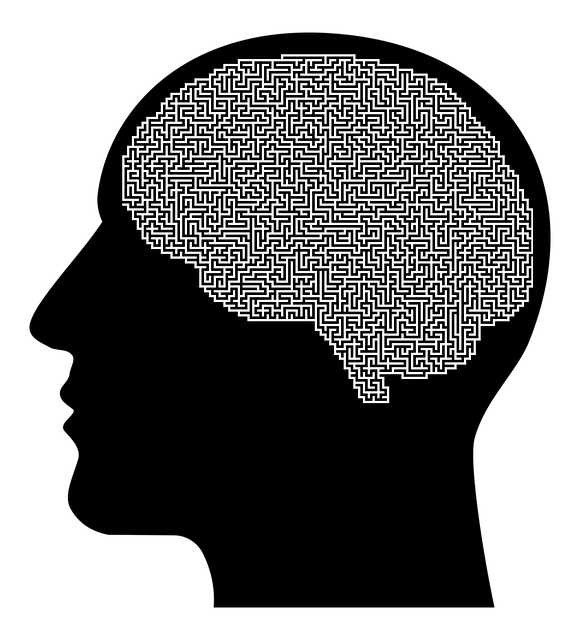Wheat Ridge Kaiser Permanente conducts vital mental wellness program evaluations using diverse methods, including pre/post assessments, focus groups, interviews, and surveys, to measure emotional well-being improvements. Their innovative phone-based mental health services employ structured interviews and standardized questionnaires for personalized support, tracking symptoms, severity, and daily impact to develop tailored care plans. By combining quantitative metrics (participation rates, client outcomes) with qualitative feedback, they make data-driven decisions, enhancing programs like their dedicated mental health phone number to better serve evolving client needs over time.
Mental wellness program evaluation is a critical aspect of ensuring effective support for individuals seeking aid. This article explores comprehensive methods for assessing and measuring the impact of initiatives, particularly focusing on Wheat Ridge Kaiser Permanente’s innovative phone-based services. We delve into assessment tools tailored to these digital interventions, highlighting their role in enhancing mental health outcomes. By examining key evaluation metrics, we uncover how these programs positively influence users’ well-being, offering valuable insights for healthcare providers and researchers alike. Discover the techniques shaping the future of mental wellness support through Wheat Ridge Kaiser Permanente’s phone number-based initiatives.
- Understanding Mental Wellness Program Evaluation
- Assessment Tools for Wheat Ridge Kaiser Permanente's Phone-Based Services
- Measuring Impact and Effectiveness of Mental Health Programs
Understanding Mental Wellness Program Evaluation

Mental wellness program evaluation is a crucial process that measures the effectiveness and impact of interventions aimed at improving emotional well-being. It involves systematic methods to assess whether programs achieve their intended outcomes, such as enhancing emotional regulation and teaching conflict resolution techniques. By utilizing various evaluation tools, organizations like Wheat Ridge Kaiser Permanente can track progress, identify areas for improvement, and ensure resources are allocated efficiently.
The process typically includes pre- and post-program assessments, focus groups, interviews, and surveys to gather qualitative and quantitative data. These methods help evaluate participant satisfaction, changes in mental health symptoms, and the overall success of the program in promoting emotional well-being promotion techniques. Regular evaluation allows for continuous improvement, ensuring programs remain relevant and effective in meeting the evolving needs of individuals seeking mental health support.
Assessment Tools for Wheat Ridge Kaiser Permanente's Phone-Based Services

Wheat Ridge Kaiser Permanente’s phone-based services have revolutionized mental health support, offering accessible and convenient resources for those seeking assistance. These services utilize a range of assessment tools to evaluate individuals’ mental wellness, tailoring their approach to meet unique needs. One effective method involves structured interviews designed to gauge symptoms, severity, and impact on daily life. This process helps in identifying specific areas for improvement, be it self-care practices, emotional regulation strategies, or self-esteem improvement techniques.
Additionally, standardized questionnaires are employed to assess broader aspects of mental health, including anxiety, depression, and overall emotional well-being. These tools provide valuable insights into individuals’ experiences and help professionals design personalized care plans. By combining qualitative and quantitative assessments, Wheat Ridge Kaiser Permanente ensures comprehensive evaluations, ultimately fostering effective interventions and promoting emotional well-being promotion techniques through their phone-based services.
Measuring Impact and Effectiveness of Mental Health Programs

Evaluating the impact and effectiveness of mental health programs is a multifaceted process that goes beyond simply measuring satisfaction levels. Organizations like Wheat Ridge Kaiser Permanente, with their dedicated mental health phone lines, offer valuable insights through data-driven approaches. By tracking key performance indicators (KPIs), such as participation rates, client outcomes, and program reach, these institutions can gauge the success of interventions. For instance, a focus on self-care routine development for better mental health might reveal improvements in client well-being over time, indicating the program’s effectiveness.
Moreover, examining client feedback through qualitative methods, like interviews or surveys, provides deeper understanding. This allows for exploration of individual experiences with programs, such as mindfulness meditation workshops or community outreach initiatives (e.g., Community Outreach Program Implementation). By combining quantitative and qualitative data, mental health organizations can make informed decisions, continuously improving services to better support the needs of their clients.
Evaluating mental wellness programs is a multifaceted process, from understanding key metrics to employing robust assessment tools. For organizations like Wheat Ridge Kaiser Permanente, utilizing phone-based services offers accessible avenues for support, as evidenced by their successful implementation. By measuring the impact and effectiveness of these programs, we can ensure that resources are allocated optimally and that individuals receive the best possible care. Remember that ongoing evaluation is crucial in navigating the complex landscape of mental health services and improving them over time, especially with the help of modern assessment methods.





